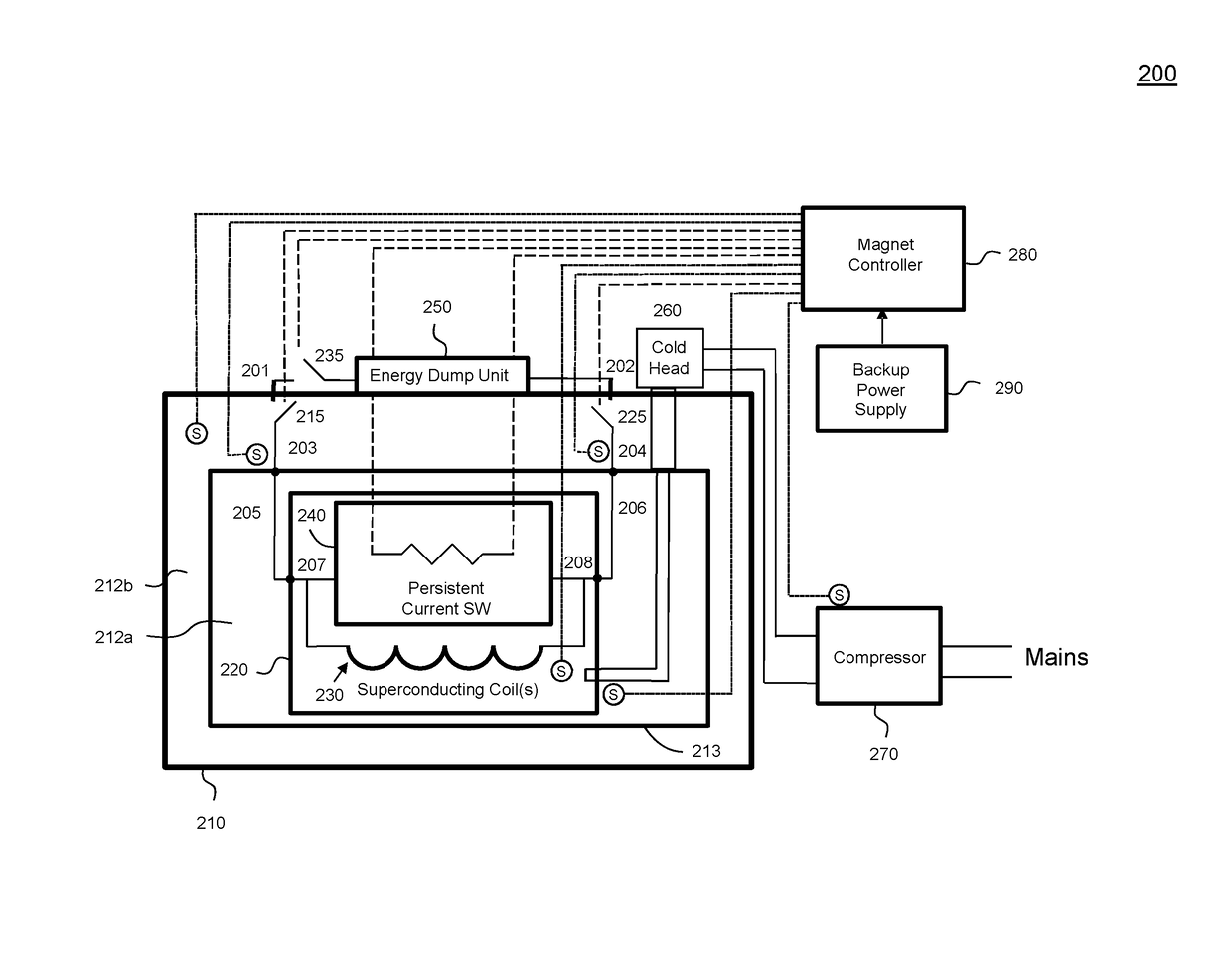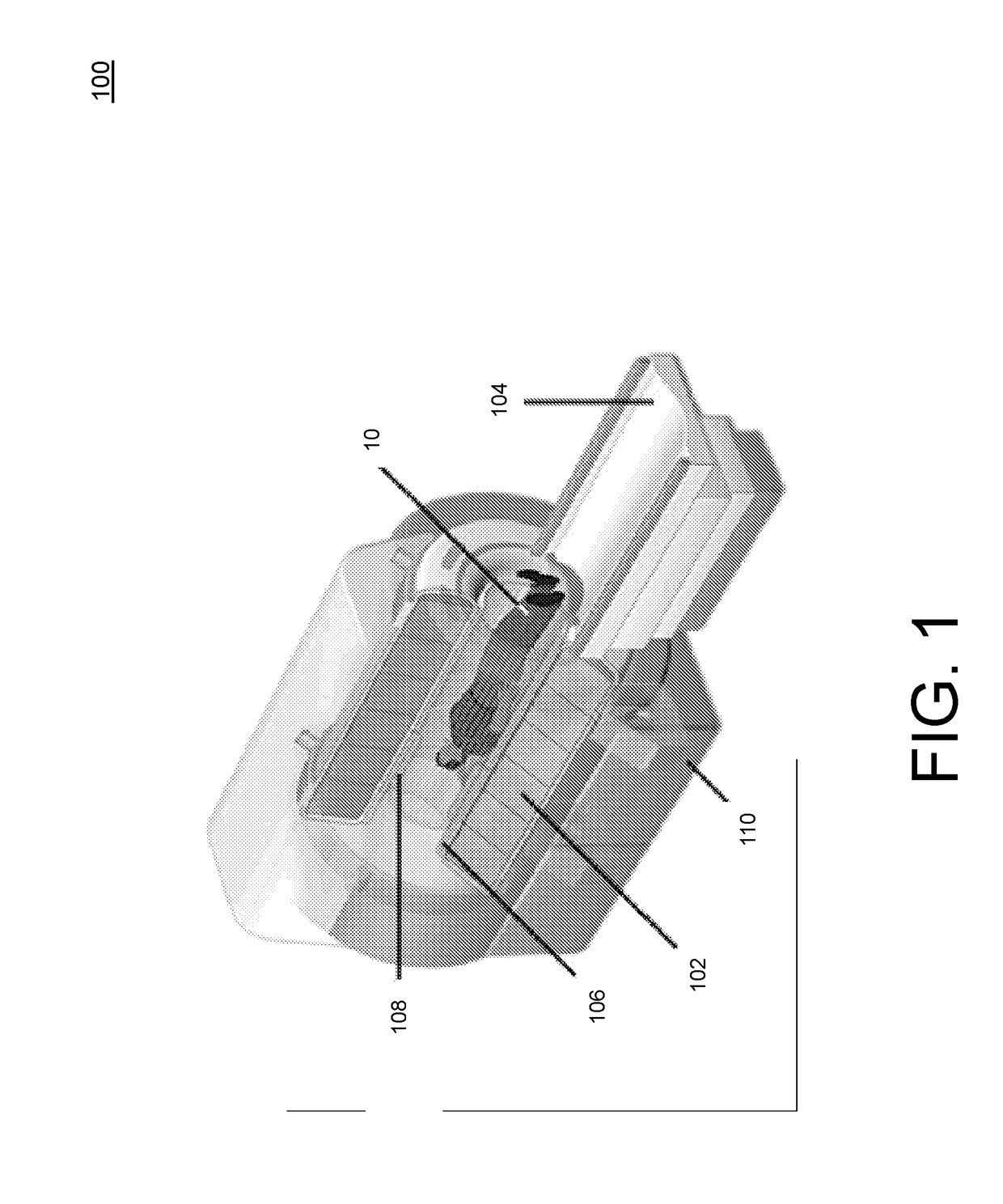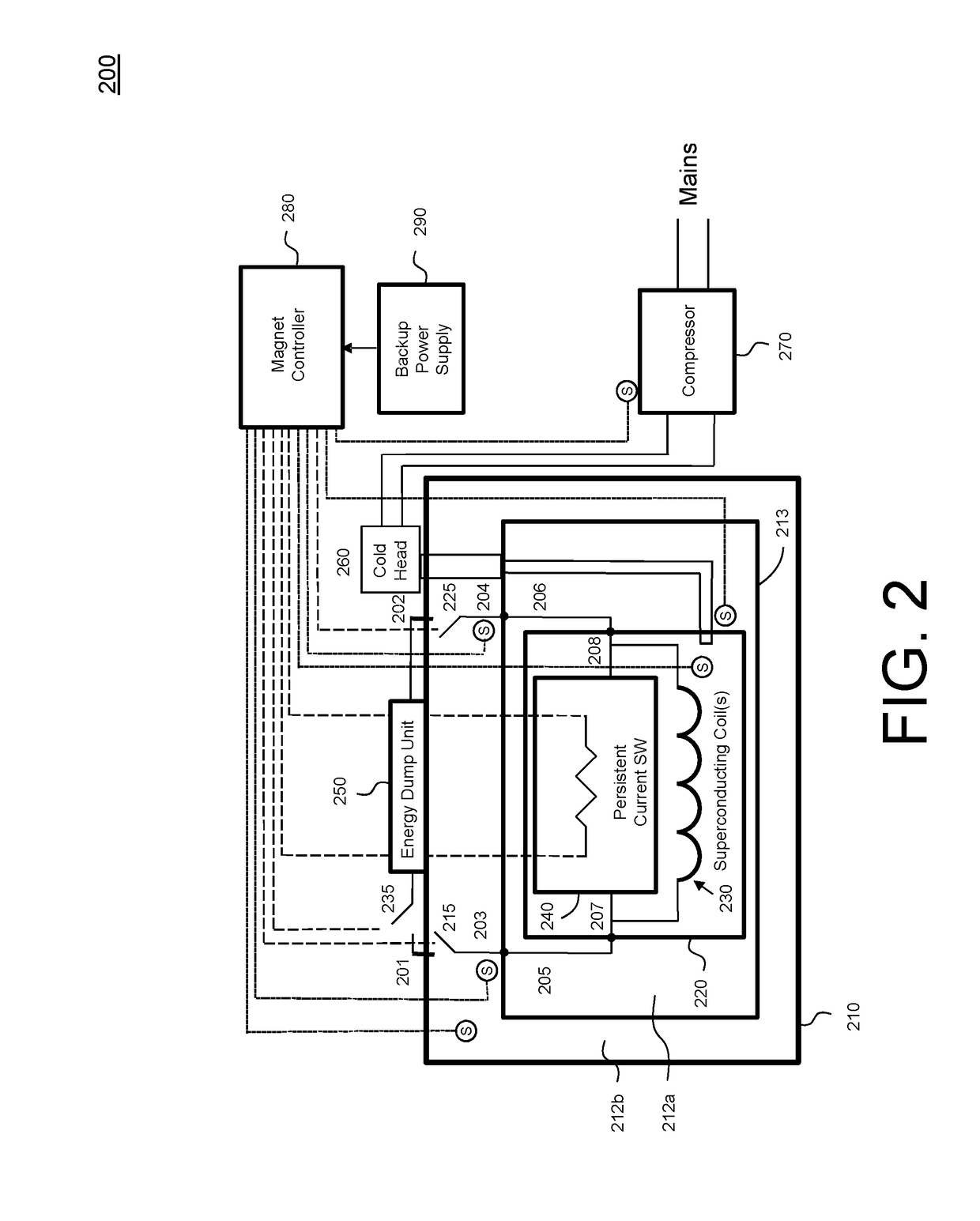System and method for automatically ramping down a superconducting persistent magnet
a technology of persistent magnets and automatic ramping, which is applied in the field of superconducting persistent magnets, can solve the problems of needing to be repaired or replaced, all the cryogenic fluid to evaporate and be lost, and heat damage to the magnet and/or other components of the system
- Summary
- Abstract
- Description
- Claims
- Application Information
AI Technical Summary
Benefits of technology
Problems solved by technology
Method used
Image
Examples
Embodiment Construction
[0034]The present invention will now be described more fully hereinafter with reference to the accompanying drawings, in which preferred embodiments of the invention are shown. This invention may, however, be embodied in different forms and should not be construed as limited to the embodiments set forth herein. Rather, these embodiments are provided as teaching examples of the invention.
[0035]FIG. 1 illustrates one exemplary embodiment of a magnetic resonance imaging (MRI) apparatus 100. MRI apparatus 100 can include, for example, a magnet 102; a patient table 104 configured to hold a patient 10; gradient coils 106 configured to at least partially surround at least a portion of patient 10 for which MRI apparatus 100 generates an image; a radio frequency coil 108 configured to apply a radio frequency signal to at least the portion of patient 10 which is being imaged, and to alter the alignment of this magnetic field; and a scanner 110 configured to detect changes in the magnetic fiel...
PUM
| Property | Measurement | Unit |
|---|---|---|
| volumes | aaaaa | aaaaa |
| volume | aaaaa | aaaaa |
| magnetic field | aaaaa | aaaaa |
Abstract
Description
Claims
Application Information
 Login to View More
Login to View More - R&D
- Intellectual Property
- Life Sciences
- Materials
- Tech Scout
- Unparalleled Data Quality
- Higher Quality Content
- 60% Fewer Hallucinations
Browse by: Latest US Patents, China's latest patents, Technical Efficacy Thesaurus, Application Domain, Technology Topic, Popular Technical Reports.
© 2025 PatSnap. All rights reserved.Legal|Privacy policy|Modern Slavery Act Transparency Statement|Sitemap|About US| Contact US: help@patsnap.com



